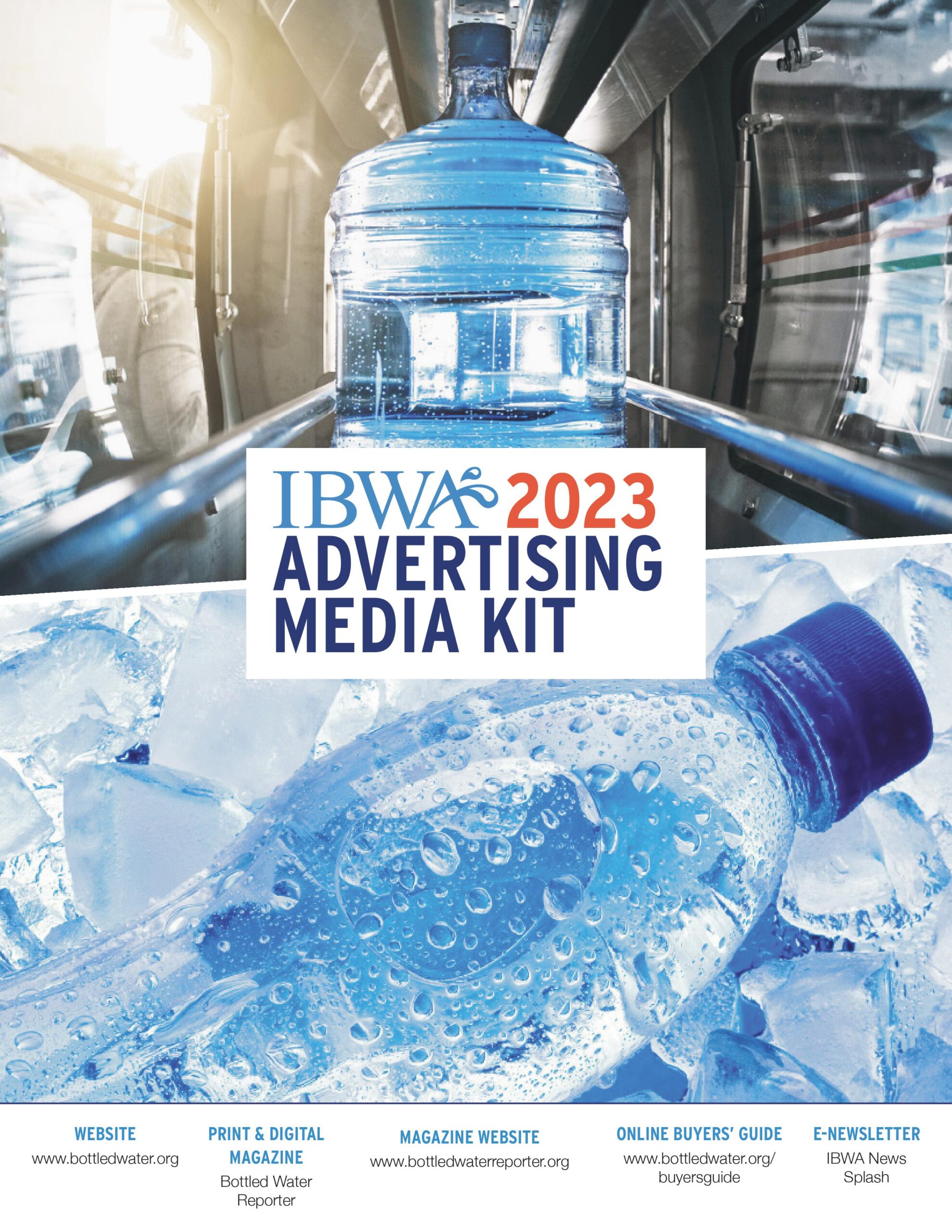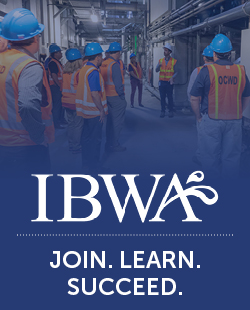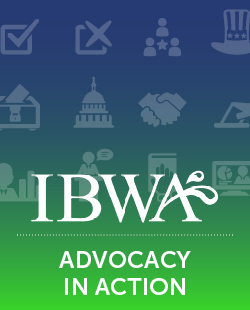August 12, 2003
Senator Clifton Below
25 Perley Avenue
Lebanon, NH 03766-1816
Re: Chapter He-P 2100 – Beverages and Bottled Water
Dear Senator Below:
The International Bottled Water Association (IBWA)1 appreciates the opportunity to provide comments on The Department of Health and Human Services (DHHS) proposed final regulations, Chapter He-P 2100 – Beverages and Bottled Water.
IBWA provided testimony and written comments to DHHS during the public comment period on the proposed regulations. A copy of IBWA’s comments is enclosed for your information and review. IBWA supports the efforts of DHHS to harmonize the state regulation of bottled water with the United States Food and Drug Administration’s bottled water regulations. This will assist bottlers in understanding and complying with the regulations. The proposed final regulations incorporate much of the national bottled water laws and regulations into the New Hampshire regulations, but there is one significant exception, Rule He-P 2104.02 (b) and (c). For the reasons enunciated below in this letter, IBWA respectfully requests the Joint Legislative Committee on Administrative Rules’ (JLCAR) objection and disapproval of the inclusion of this provision in the final regulation.
Under Rule He-P 2104.02 (b) and (c), DHHS would require bottled water labels to identify the water source. The proposed final regulation states:
(b) The label shall state the type of water source, such as artesian, well, or spring, and the location of the source including municipality, state and country if not in the U.S.
(c) If more than one source is used in the finished product, the label shall clearly state the type and location of all water sources used.
Contrary to Legislative Intent
As you can see from the enclosed comments, IBWA opposed the inclusion of water source on bottled water labels during the public comment period in both written comments (see pages 8-11) and public testimony. Among the reasons for IBWA’s opposition was that the New Hampshire House of Representatives had voted HB 272, which would have mandated similar requirements for bottled water labels, “inexpedient to legislate” in 2001, only one year before the regulation was proposed.
He-P2104.02 (b) and (c) is contrary to the legislative intent as prescribed at Chapter 400 Part 402.01(a) for JLCAR, since “the rule attempts to implement a bill which the Legislature defeated, absent an indication that the bill was defeated primarily because its content was more suited to rulemaking.” HB 272 was voted “inexpedient to legislate” by the House Commerce Committee by a vote of 10-3. In the House of Representatives’ February 20, 2001 Journal, the House Commerce Committee reported that:
“The committee did not feel that the inclusion of this information provided any direct benefit to the consumer or served a useful public purpose. The committee learned that bottled water can come directly from municipal water systems, as long as it meets clean water standards. Under federal law any water labeled “spring water” must identify the source. However, the courts found there is no compelling health reason to require bottled water companies to label the sources as long as they meet clean water standards.”2
The legislature clearly did not feel the issue was more suited for rulemaking, but was an issue that did not merit enactment as law in New Hampshire. In fact, FDA reached a similar conclusion in 1995 in promulgating the bottled water standards of identity. The FDA stated in finalizing the standards of identity3 that:
“The brand name and the name of the manufacturer distinguish bottled waters as much as specific source labeling would. According to § 101.5(a), the label of a food in packaged form must specify conspicuously the name and place of business of the manufacturer, packer or distributor. This labeling requirement provides consumers with the necessary information to contact the firm and obtain information (e.g., the name and location of the source, the well number, or the spring’s legal name) that is not provided on the label if they are interested. Therefore, FDA concludes that there is no basis on which to require that information concerning the specific source of bottled water appear on the label.”4
Bottled Water Source Labeling – Pre-emption
Furthermore, both in terms of FDA already regulating the subject and interfering with interstate commerce, a state regulation requiring water sources on bottled water labels is pre-empted under Federal law. Enclosed for your information is a copy of IBWA’s analysis of the issue of Pre-emption of State Source Labeling.
The Food and Drug Administration reviewed and rejected a requirement to include the water’s source on bottled water labels in their rule making on the bottled water standards of identity.5 In fact, FDA was also asked to require all bottlers—not simply those using a community or municipal source—to provide specific source information such as a well number or a spring’s legal name. The agency, however, declined to do so, concluding that such information was not a “material fact” for which disclosure is required under the Federal law.
Presently, all packaged foods, including bottled water, have extensive labeling requirements, including the statement of identity, compliance with the definitions in the Standards of Identity, ingredient labeling, name and place of business of the manufacturer, packer or distributor, and nutrition labeling, if it is so required. These labeling requirements provide consumers with the necessary information to contact the firm and obtain information (e.g., the name and location of the source, the well number, or the spring’s legal name) that is not provided on the label if they are interested.
Conclusion
IBWA supports the efforts of DHHS to update and harmonize the state’s bottled water regulations. It should ensure better compliance by bottled water companies and greater protections for consumers. IBWA requests that JLCAR only conditionally approve the final proposed Beverage and Bottled Water Regulations, but disapprove Rule He-P2104.02 (b) and (c) of the regulations.
If you any questions or need further information, please do not hesitate to contact IBWA.
Sincerely,
Patrick Donoho
Vice President, Government Relations
Enclosures (2)
Cc: Scott F. Eaton, JLCAR
Joyce Welch, DHHS
Valerie King, DHHS
______________________________________________
1 IBWA is the trade association representing all segments of the bottled water industry. Founded in 1958, IBWA member companies include U.S. and international bottlers, distributors and suppliers, of which 6 are located in New Hampshire. IBWA works closely with the U.S. Food and Drug Administration (FDA), which regulates bottled water as a packaged food product, and with state governments to set stringent standards for safe, high quality bottled water products. IBWA also has a Model Code that sets strict standards for bottled water, which incorporate the national law on bottled water and the industry’s best practices. As a condition of membership, IBWA bottlers must submit to an annual, unannounced inspection for compliance with the Model Code by an independent third party.
2 HJ 20; pages 294-295
3 21 CFR 165.110
4 60 Fed. Reg. 57104-5
5 60 Fed. Reg. 57076, 57104 (cmt. 79)



